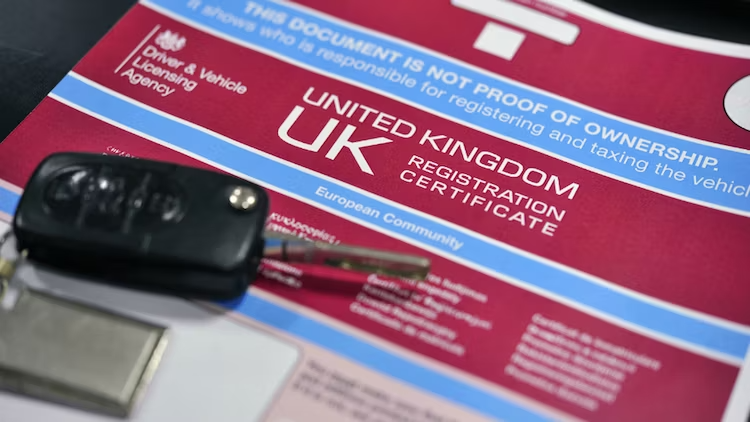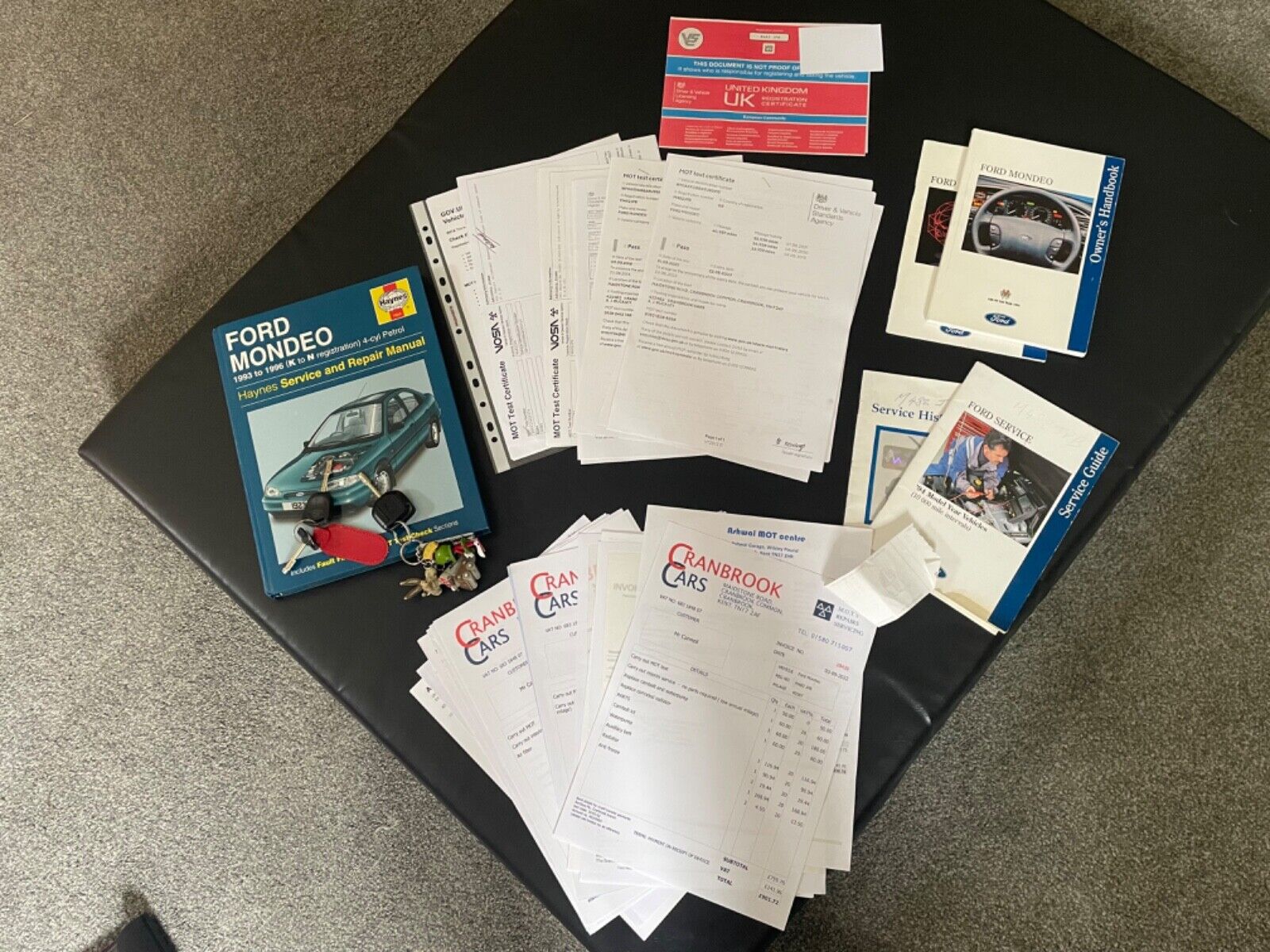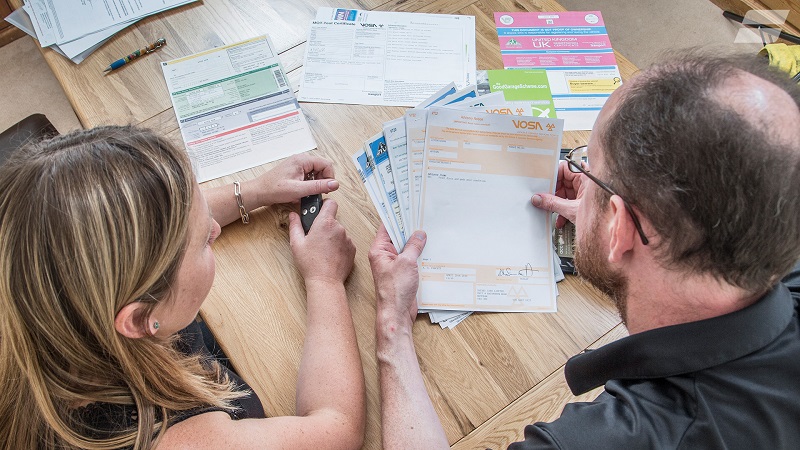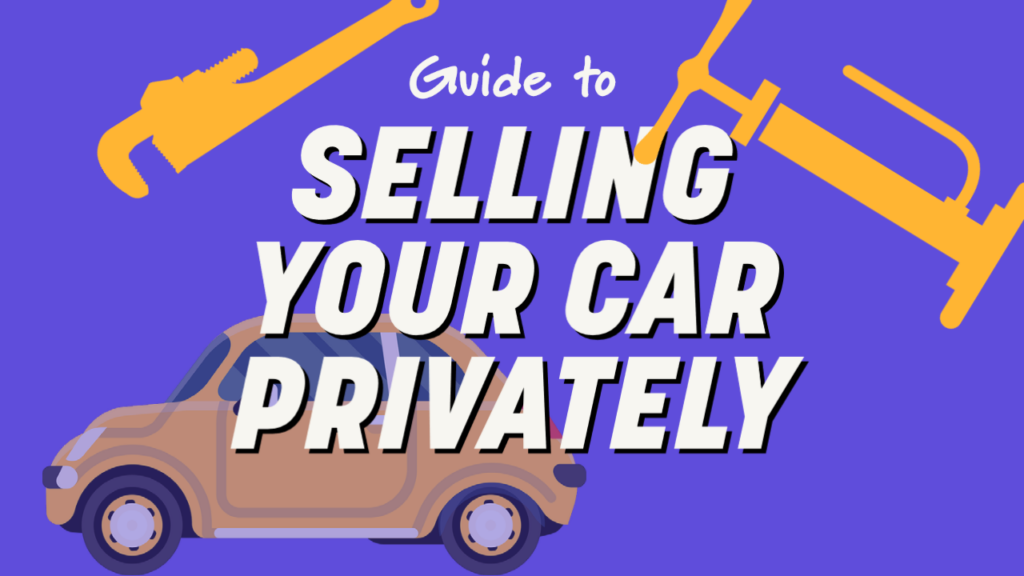Looking to sell your car? Brace yourself for the paperwork! From essential documents to making sure you’re not getting scammed, selling a car involves a lot of sorting through your files. Here I’m going to cover the must-have documents and best practices to ensure a seamless and secure selling experience.
So get ready to navigate the paperwork jungle with confidence!
1. Logbook
Also known as the registration document or V5C, the logbook is one of the most important documents you’ll need to sell your car – though it is possible to sell it without one, in some circumstances.
The V5C is so important because it’s the official way that you inform the DVLA that you are changing ownership of the car.
Why? Because when selling a car, you’ll need to fill in both sections 6 and 8 (if selling the car privately) or section 9 (if selling to a motor dealer, insurer or scrap company). Remove the green slip and give it to the buyer; you can then post the document to the DVLA, and they will do the rest to handle the ownership transfer behind the scenes.
Alternatively, you can now notify the DVLA of a sale online.

2. Proof of purchase
In most cases, a buyer will pay a deposit (typically 10%) to reserve a car, and then the remaining balance when they collect the car. If a buyer pays a deposit to secure the car, then as the seller you will need to provide them with a receipt.
The receipt should include details such as the names of the buyer and seller, the date, amount paid, and details of the car such as the make, model, registration number and VIN. You’ll need two copies so that you can give one to the buyer and retain a copy for yourself.
You will need to make a similar document when the buyer pays the balance and collects the car. Again, you will need a copy for both your own and the buyer’s records.
3. Service history
Many cars are sold on the basis that they have been kept up to date with maintenance.
The service history is a way of indicating this. Not only will a full service history increase the confidence that the buyer has in the sale, but it can also even add value to the car being sold. If you have advertised the car as having a service history, then you will need to include any paperwork… this includes receipts for work done to document this.
Remember to include any information about repairs made under warranty. If you have lost part or all of the service history, then you may be able to contact the relevant garages and request a copy of their paperwork.
4. MOT certificate
The MOT certificate proves that the car has been assessed and has been deemed roadworthy by an authorised technician. It also proves that the car meets the environmental standards with regards to emissions.
All MOT certificates that have been issued since 2006 are now available to view online. However, it is good practice to keep the original certificates that were issued after each MOT. If you’ve lost or damaged an MOT certificate you can apply for a replacement MOT certificate on the Gov website – the cost for this is £10.
5. Insurance policy
When you’ve sold your car, it’s not quite over: it’s important to tell your insurance company that you no longer own it. If you’re mid-way through a policy, then you may be able to get some money back, but if you have made any insurance claims while owning the vehicle, then you may also want to provide the new owner the documentation for any repairs that were carried out.
Why? Simply because this will show that you’ve properly looked after the car over the years.

6. Warranty
If your car is still within its warranty period or you have purchased an extended warranty which is transferrable, then you’ll need to provide the new owner with the warranty documents and let the company know that you have sold the car.
7. Parts receipts
It’s a good idea to provide the new owner with the receipts of any car parts that you’ve made during your ownership. Many larger car parts come with long, transferrable warranties. You’ll need the original proof of purchase should you wish to make a claim though. These receipts will show that you’ve had the work carried out. They will also make life much easier for the new owner.T
This is also important if your car has ever been modified – buyers may want to see that the modifications were done at a reputable garage.
How to Avoid Fraud When Selling Your Car
When it comes to selling your car, it’s crucial to stay vigilant and protect yourself against potential scams or fraudulent activities. Here are some practical tips to help keep you safe during the selling process:
- Be Cautious with Payment Methods: It’s best to accept cash in full or a secure bank transfer, such as a CHAPS transfer, to ensure immediate and verified payment. If you choose to accept a cheque, arrange for the buyer to collect the car only after the funds have cleared in your account. Avoid payment methods like PayPal, Western Union, or other money transfer services, as they can be susceptible to fraudulent transactions.
- Accompany Test Drives: Always accompany potential buyers during test drives. This allows you to maintain control of the situation and ensures that the buyer doesn’t pose a risk to your safety or the security of your vehicle. Never hand over your keys until you’ve received full payment and are ready to complete the sale.
- Have a Trusted Presence: Whenever potential buyers come to view your car, it’s a good idea to have a family member or friend present. This provides an additional layer of security and can help deter any potential fraudulent activities.
- Verify Driving License and Insurance: Before allowing a test drive, ask the buyer to provide a valid driving license and proof of insurance coverage. This ensures that they are legally permitted to test drive your vehicle and protects you in the event of any accidents or damages during the test drive.
- Request Buyer’s Full Address: Legitimate buyers should have no issue providing their full address. Request this information as it adds an extra layer of security and can assist in any legal or follow-up procedures if necessary.
- Beware of Export Scams: Be cautious of anyone claiming to be an “exporter” who asks you to pay for shipping fees to send your car abroad. These scams often involve requests for upfront payments and can result in financial loss or complications. Avoid engaging with such individuals and focus on local buyers instead.
Remember, while the majority of car sales occur without issues, it’s essential to stay alert and trust your instincts. If anything seems suspicious or too good to be true, it’s better to err on the side of caution – your safety and security are of utmost importance throughout the selling process.

Verdict
As you can see, selling a car privately requires a lot of paperwork and frankly, it’s a bit of hassle.
Honestly, sometimes it’s easier to just sell direct to the dealer. But wait: Here at Car Monkey we can help you do just that, by comparing valuations of all the UK’s biggest car buyers like Webuyanycar, Cazoo and more. Then you just have to choose who you’re going to sell to and give them the keys – they will take care of the rest.
More from Car Monkey...
Can I sell without a logbook?
Yes, it is possible to sell your car without a logbook. However, having a current and valid V5C (logbook) makes the selling process easier and more attractive to potential buyers.
What documents do I need to sell my car?
The essential documents you'll need to sell your car include the V5C (logbook), proof of purchase receipts, service history, MOT certificates, insurance repairs documentation, and parts receipts. Keeping these documents in order will help streamline the selling process.
How can I avoid fraud when selling my car?
To prevent fraud, it's important to follow some key steps. Only accept secure payment methods such as cash or verified bank transfers, accompany potential buyers during test drives, never give your keys without receiving full payment, and so on.
How we reviewed this article:
Our experts continually monitor motor industry news & research, and we update our articles when new information becomes available.
- 8th July 2023
Current Article - By Harry Edwell - 25th April 2024
Checked & Reviewed - By John Mikler - 7th July 2023
Copy Edited - By Gary McKrill - 2nd May 2024
Reviewed - By Gary McKrill
Car Monkey has strict sourcing guidelines and we try to rely on peer-reviewed studies, academic research institutions, and motoring associations where possible.



